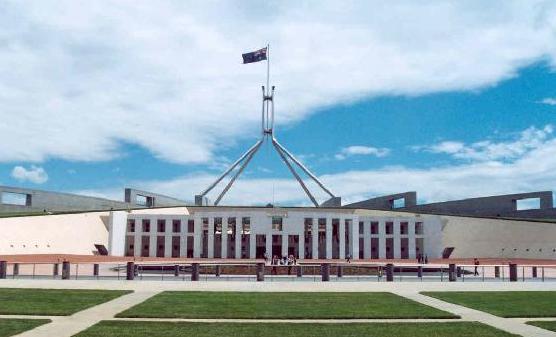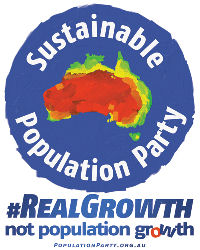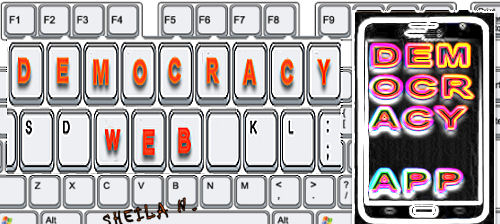
Democratic Presumptions
As Australians we pride ourselves with the presumption we live in a democracy, benefiting from the universally accepted principles of 'equality and freedom'.
We are supposed to have a "government of the people, by the people, for the people" [Abraham Lincoln (1809-1865], where our Constitution underscores basic personal and political rights, fair and free elections, and independent courts of law.
Every individual Australian and social group is supposed to have a guarantee of basic human rights. We are supposed to have a separation of powers between the institutions of the state - government [executive power], parliament [legislative power] and Courts of Law [judicative power].
We are supposed to have the freedom of opinion, speech, press and mass media, religious freedom, one person - one vote, and our governments are supposed to exercise good governance in public interest and free of corruption.
Failings of Representative Democracy
In Australia, we are denied direct democracy ('people power'). Why?
Is our political system intended to benefit of the dominant political parties and the interests of their corporate financiers, or the people of Australia?
Why are Australians forced into accepting this lesser standard of 'representative democracy simply due to British commonwealth heritage'?
Elected representatives of the people are supposed to make decisions that represent the wishes of the people, but they don't. Typically in the run up to elections, the political parties nominate their favourite (compliant) candidate and then spend the vast us of money they get from wealthy financiers attached with guarantees of payments in kind (i.e. bribes).
These party brown nosed candidates promise all sorts of things to the electorate which they have targeted from the same funds to pay for professional electorate research. Thee same funds to pay for clever targeted campaigning. Of course the dominant parties get voted in. Independent candidates don't have a democratic chance except once in a blue moon if they have financial resources behind them.
But Australia is not America. Most Australians would disagree that wealth needs to be a condition of entering parliament in order to represent the people. Yet this has become the reality of Australia's electoral process. The two dominant political parties, Labor and Liberal continue to be recipients of obscene levels of financial donations received as inducement for political favours in kind. Such systemic practice is no different to the infamous corruption of nations to Australia's north. It is corruption no less.
Former Prime Minister Ben Chifley, the son of a blacksmith and a train engine driver from Bathurst wouldn't stand a chance in 21st Century Australian millionaire sponsored politics. Yet perhaps like no other Australian prime minister, Chifley remains regarded as one of Australia’s most respected Prime Ministers. Chifley maintained his connections with his electorate at Bathurst until the end of his life. He was born and raised in Bathurst. He held represented the people of the Macquarie Electorate (including Bathurst) throughout his political life. He is buried in Bathurst. Chifley was a true democratic representative of his electorate and he extended this philosophy to his prime ministership of Australia during our uncertain and impoverished post WWII period.
Australia's 'parliamentary democracy' remains a British model adopted over a hundred years ago. It perpetuates an undemocratic dominant two party system allowing the slimmest of majorities control the country, but this is not representing the people.
Australian voters only get an opportunity to choose their representatives once every four years. They base their vote on the promises by their local representative on delivering what most of the people want of their government or the next four years.
But between elections, aside from protests by the Opposition parties and the media screaming to hold the elected representatives accountable for their election promises, voters are denied any say.
Australia's Illiberal Democracy
Australia has a narrower definition of full democracy. It has become less tolerant, less encouraging of real political reform and social progress and less respectful of civil liberties.
Although elections across Australia are conducted fairly, candidate pre-selection and branch stacking is undemocratic, voters are excluded from government agendas, denied any say into party policies, denied any say in drafting legislation, denied any say in constructing government budget priorities. Party politics is where the real political power lies in Australian politics, but this is not democracy.
Our so-called elected representatives keep letting us down. Look at Howard and Rudd! Look at Garrett or Costello! These lot are controlled by their own political party agenda, and Party discipline comes before the wishes of a member of parliament's electorate. Our legislative voting is along party lines, not according to the say of local electoral seats these 'representatives' are supposed to represent.
If every parliamentary lower house and upper house vote was allowed a conscience vote, secret ballot and a vote that represented the wajority wishes of an MP's electorate we perhaps would have genuine democracy, but this doesn't happen. Look what the 'party' did to Liberal Opposition Leader Malcolm Turnbull when he exercised a conscience vote against Liberal Party policy supporting the government on the Emissions Trading Scheme.
Party gagging policy is more than undemocratic; it is Politburo.
Capable leaders of principle in Australia such as Malcolm Turnbull, Bob Carr, Neville Wran, Andrew Refshauge, Craig Knowles, Laurie Brereton, Petro Georgiou and Graham West are discouraged and discarded by Australia's unprincipled party politics. Any wonder why Australian politics lacks capable leaders. Leaders get more respect in the corporate sector.
Australia has effectively an 'illiberal democracy' - one in which, although elections take place, voters are excluded from the political agenda of party politics, denied any say into party policies, denied any say in drafting legislation, denied any say in constructing government budget priorities. Party politics is where the real political power lies in Australian politics.
In fact we have an illiberal democracy, in which, although elections take place, citizens are cut off from knowledge about the activities of those who exercise real power because of the lack of direct democratic power by the people.
Australia's dominant two political parties are right-wing - economically liberal and socially conservative. Liberal and Labor are almost indistinguishable in political and social philosophies. They are merely 'Lib-Lab' factions of the same philosophical oligarchy.
Australia's mainstream media are not independent. They are dominated by Murdoch's News Ltd and Fairfax - a similar oligarchy with allegiances to the two dominant political parties. They shape public thinking to the agenda of the major political parties and deliberately omit publishing news and issues not aligned with the interested of these two parties.
Australian are denied a bill of rights or human rights act. The dominant parties argue that rights are already well protected in Australia in the Constitution, the Courts and by our parliamentary processes an freedoms. But Australian law does not recognise universal human rights in Australia. Look at the treatment of asylum seekers and anyone suspected of being a terrorist by ASIO or anyone suspected of being a member of a 'bikie' gang in South Australia. Such people can be detained without charge by police just like they are in dictatorships.
Most Australians are denied fair access to our legal system because of its prohibitive cost. Parliamentary laws are increasingly made to give absolute discretion to the minister of the day, who make party political decisions. Development planning and environmental legislation are current examples at both federal and state levels. There may well be separation of powers between the government and the courts, but increasing legislation is being drafted to remove the discretionary powers of the judiciary - again especially in relation to development planning and environmental legislation.
We are supposed to have the freedom of opinion, speech, press and mass media, yet the Australian Communications and Media Authority controls and regulates broadcasting, radio communications and telecommunications and Internet content standards. Currently, the current federal Labor Government is proposing to implement pervasive Internet filtering legislation which will censor all online content.
Australian governments do not exercise good governance. They waste countless billions of public moneys (Rudd's failed insulation scheme, Defence spending wastage, school building programme associated with Rudd's Education Revolution).
And Australian governments have recurring history of corruption.
The abuse of privilege and parliamentary code of conduct by NSW Labor's MP in Penrith, Karen Paluzzano and Minister Ian MacDonald do not send a positive message to the electorate that NSW Labor can be trusted.
Australian Political Reform
What is needed is political reform in Australia. This has many dimensions. The first step is that Australians need to translate their dissatisfaction with the dominant parties, their frustration with the political process, their dis-empowerment by being in 'safe seats', their disillusionment with repeated broken election promises into calls for political reform.
Enough is enough!
Sir Winston Churchill may well have famously said, "It has been said that democracy is the worst form of government except all the others that have been tried", but British style constitutional democracy has evolved since the Magna Carta. Why stop evolving it?
Electoral Mandate Imperative
We need a overriding 'electoral mandate' enshrined in the Australian Constitution.
Although Australian elections are not rigged like in Nigeria or Sri Lanka, Australia has a history of gerrymandering, of branch stacking, and a system of party pre-selection for representative candidates.
Preselection of political party candidates for Australian electoral seats at both state and federal level, are appointed typically by a selection committee with a political party which sets rules and conditions for candidates to ensure the agenda of the party is perpetuated. It is a party within a party - a faction. It perpetuates its own party power and influence by choosing who it lets in.
The people of the electorate have no say in the process. In many cases even the rank and file party membership has no say in the process. In 2003, the factional Right in NSW Labor 'installed' Tanya Gadiel, a staffer in Police Minister Michael Costa's office, as Labor's candidate for the 'safe' Labor electoral seat of Parramatta. The electorate were denied a say. Even the rank and file membership of Labor's Parramatta branch were denied a say. The popular former Mayor of Parramatta, David Borger, was cast aside because he belonged to Labor's left faction. Preselection perpetuates political factionalism. It ignores merit and favours cronyism. It is undemocratic.
Political party 'safe seats' practically guarantee power retention by one of the dominant political parties. The federal seat of Kingsford Smith in southern Sydney has long been a safe Labor seat. It was held by Labor's former Deputy Prime Minister Lionel Bowen between 1969-90. Bowen handed over the keys to Laurie Brereton who was a prominent cabinet minister in Keating Ministry. Before retiring in 2004, Labor engineered the local numbers to allow Peter Garret to win pre-selection,who has become Labor's federal environment minister.
Australia's sense of electoral mandate has been eroded by governments not being legally held to account when they break their electoral promises.
Just what do elections entrust governments to do? What are the parameters of that trust?
What happens when those parameters are exceeded mid-term or simply ignored?
At present, nothing! This is undemocratic and unacceptable.
Former Prime Minister John Howard's distinction between 'core and non-core promises' were unacceptable. The concept of a politician at election time making non-core promises is to mislead the electorate. Similarly, Opposition Leader Tony Abbott's claim that only his scripted remarks can be taken as "gospel truth" but "in the heat of discussion you go a little bit further", also unacceptable.
Australians have a right to expect and rely on the promises and undertakings made by politicians. Australians have a right to expect their elected representatives will rightfully represent them in parliament, will listen to their needs, be ethical, respect Australian values, exercise their delegated power with due diligence and appropriate governance.
Politicians and political parties have a moral contract with the people when making electoral promises. That moral contract needs to be enshrined in law. Broken promises and exceeding promised parameters constitute a breach of electoral contract and this needs to start triggering re-elections.
 Yesterday, as the U.S. Senate resolved to ‘fast- track’ the TPP, in Australia, the Productivity Commission came out all guns blazing declaring the ‘free’ trade agreement ‘preferential’ and ‘dangerous’. Bill Davis and Dr Matthew Mitchell report.Republished with thanks from original article at Independent Australia.
Yesterday, as the U.S. Senate resolved to ‘fast- track’ the TPP, in Australia, the Productivity Commission came out all guns blazing declaring the ‘free’ trade agreement ‘preferential’ and ‘dangerous’. Bill Davis and Dr Matthew Mitchell report.Republished with thanks from original article at Independent Australia.


 Video of William Bourke's speech inside. William Bourke is the President of the Sustainable Population Party. In this speech he covers a broad range of issues relevant to the population debate including: political donations and the power of vested interests, growth lobby spin, the world's biggest tower, GDP, Victoria's deteriorating economic base, the economic importance of natural capital, single issue politics, and a potential way forward for the population debate through a national vote by plebiscite.
Video of William Bourke's speech inside. William Bourke is the President of the Sustainable Population Party. In this speech he covers a broad range of issues relevant to the population debate including: political donations and the power of vested interests, growth lobby spin, the world's biggest tower, GDP, Victoria's deteriorating economic base, the economic importance of natural capital, single issue politics, and a potential way forward for the population debate through a national vote by plebiscite.
 Hi fellow people that care about Democracy and Political change:
Hi fellow people that care about Democracy and Political change: The app would cover:
The app would cover:
Recent comments